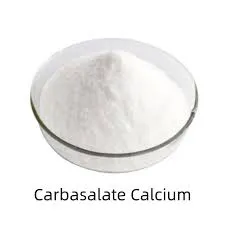- Afrikaans
- Albanian
- Amharic
- Arabic
- Armenian
- Azerbaijani
- Basque
- Belarusian
- Bengali
- Bosnian
- Bulgarian
- Catalan
- Cebuano
- Corsican
- Croatian
- Czech
- Danish
- Dutch
- English
- Esperanto
- Estonian
- Finnish
- French
- Frisian
- Galician
- Georgian
- German
- Greek
- Gujarati
- Haitian Creole
- hausa
- hawaiian
- Hebrew
- Hindi
- Miao
- Hungarian
- Icelandic
- igbo
- Indonesian
- irish
- Italian
- Japanese
- Javanese
- Kannada
- kazakh
- Khmer
- Rwandese
- Korean
- Kurdish
- Kyrgyz
- Lao
- Latin
- Latvian
- Lithuanian
- Luxembourgish
- Macedonian
- Malgashi
- Malay
- Malayalam
- Maltese
- Maori
- Marathi
- Mongolian
- Myanmar
- Nepali
- Norwegian
- Norwegian
- Occitan
- Pashto
- Persian
- Polish
- Portuguese
- Punjabi
- Romanian
- Russian
- Samoan
- Scottish Gaelic
- Serbian
- Sesotho
- Shona
- Sindhi
- Sinhala
- Slovak
- Slovenian
- Somali
- Spanish
- Sundanese
- Swahili
- Swedish
- Tagalog
- Tajik
- Tamil
- Tatar
- Telugu
- Thai
- Turkish
- Turkmen
- Ukrainian
- Urdu
- Uighur
- Uzbek
- Vietnamese
- Welsh
- Bantu
- Yiddish
- Yoruba
- Zulu
Ное . 09, 2024 20:09 Back to list
Tyloisin Injection Treatment Options for Cats and Their Health Benefits
Tylosin Injection for Cats Overview, Uses, and Considerations
Tylosin is an antibiotic that belongs to the macrolide class of medications, primarily known for its effectiveness against a wide range of bacteria and certain protozoa. This medication is often used in veterinary medicine to treat various infections in cats. While tylosin can be an effective treatment option, pet owners should be aware of its uses, dosage forms, potential side effects, and important considerations when administering it to their feline companions.
Uses of Tylosin in Cats
Tylosin is commonly prescribed for its antibacterial properties, particularly against gram-positive bacteria. It is frequently used to treat various conditions in cats, including respiratory infections, soft tissue infections, and some gastrointestinal issues. Additionally, tylosin has been used to manage specific conditions like inflammatory bowel disease (IBD) in cats, as it can help reduce inflammation and alleviate symptoms.
The antibiotic is also noted for its effectiveness against certain mycoplasma infections, which can be particularly problematic in young or immunocompromised cats. As with any medication, the exact use of tylosin will depend on the individual cat's health condition and the veterinarian's clinical judgment.
Administration and Dosage
Tylosin can be administered in several forms, including oral tablets, powder, or injectable solutions. The injectable form is particularly beneficial for cats that may have difficulty taking oral medications due to their condition or temperament. The dosage of tylosin will vary based on several factors, including the cat's weight, age, and the condition being treated. It is crucial for pet owners to follow their veterinarian's dosage recommendations carefully to ensure the effectiveness of the treatment and minimize potential side effects.
In general, the recommended dosage for injectable tylosin in cats can range from 2.5 to 10 mg per kg of body weight, administered subcutaneously or intramuscularly, depending on the specific circumstances. After administration, cats should be monitored for any adverse reactions to the medication.
tylosin injection for cats

Potential Side Effects
While tylosin is generally well-tolerated by cats, there are potential side effects that pet owners should be aware of. Common side effects can include vomiting, diarrhea, and loss of appetite. These side effects are often mild and can be managed by adjusting the dosage or switching to another form of administration if needed.
In less common cases, more serious side effects may occur, such as allergic reactions, which could manifest as swelling, hives, or difficulty breathing. If any of these symptoms appear after administering tylosin, it is essential to seek immediate veterinary attention.
Considerations and Precautions
Before starting any treatment with tylosin, it is vital for pet owners to provide their veterinarian with a complete medical history of their cat. Certain pre-existing conditions or concurrent medications may interact negatively with tylosin, which could compromise the cat’s health. Pregnant or nursing cats should also be evaluated carefully before receiving this medication.
Additionally, while tylosin can be effective against bacterial infections, it is not effective against viral infections. Therefore, a proper diagnosis by a veterinarian is necessary to ensure that tylosin is the appropriate treatment option for a specific ailment.
Conclusion
Tylosin injection is a valuable antibiotic option for treating infections in cats, particularly when oral administration is not feasible. As with any medication, the benefits must be weighed against potential risks, and close communication with a veterinarian is crucial. By ensuring proper diagnosis, adherence to dosage instructions, and vigilant monitoring of your cat’s response to treatment, pet owners can effectively help their feline friends recover from infections while minimizing risks associated with medications. Always consult with a veterinarian to determine the most suitable treatment plan for your cat's individual needs.
-
Guide to Oxytetracycline Injection
NewsMar.27,2025
-
Guide to Colistin Sulphate
NewsMar.27,2025
-
Gentamicin Sulfate: Uses, Price, And Key Information
NewsMar.27,2025
-
Enrofloxacin Injection: Uses, Price, And Supplier Information
NewsMar.27,2025
-
Dexamethasone Sodium Phosphate Injection: Uses, Price, And Key Information
NewsMar.27,2025
-
Albendazole Tablet: Uses, Dosage, Cost, And Key Information
NewsMar.27,2025













